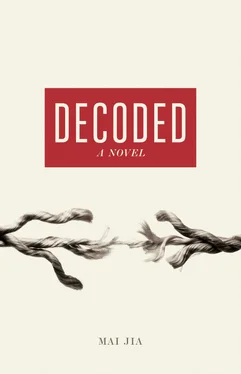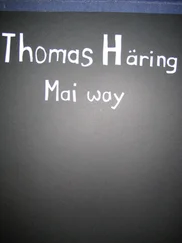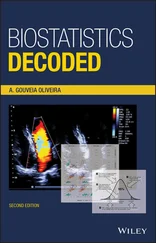Mai Jia - Decoded
Здесь есть возможность читать онлайн «Mai Jia - Decoded» весь текст электронной книги совершенно бесплатно (целиком полную версию без сокращений). В некоторых случаях можно слушать аудио, скачать через торрент в формате fb2 и присутствует краткое содержание. Год выпуска: 2014, Издательство: Allen Lane, Жанр: Современная проза, на английском языке. Описание произведения, (предисловие) а так же отзывы посетителей доступны на портале библиотеки ЛибКат.
- Название:Decoded
- Автор:
- Издательство:Allen Lane
- Жанр:
- Год:2014
- ISBN:нет данных
- Рейтинг книги:3 / 5. Голосов: 1
-
Избранное:Добавить в избранное
- Отзывы:
-
Ваша оценка:
- 60
- 1
- 2
- 3
- 4
- 5
Decoded: краткое содержание, описание и аннотация
Предлагаем к чтению аннотацию, описание, краткое содержание или предисловие (зависит от того, что написал сам автор книги «Decoded»). Если вы не нашли необходимую информацию о книге — напишите в комментариях, мы постараемся отыскать её.
Decoded — читать онлайн бесплатно полную книгу (весь текст) целиком
Ниже представлен текст книги, разбитый по страницам. Система сохранения места последней прочитанной страницы, позволяет с удобством читать онлайн бесплатно книгу «Decoded», без необходимости каждый раз заново искать на чём Вы остановились. Поставьте закладку, и сможете в любой момент перейти на страницу, на которой закончили чтение.
Интервал:
Закладка:
The minute he said this, I was immediately reminded of his current research topic — artificial intelligence. I suddenly felt alarmed and uncomfortable, because I started to wonder whether this mathematical chess might not be part and parcel of his research. If that was the case, then Zhendi was clearly being used — he was covering up what he was doing by pretending that it was all about developing this game. I then made a special point of asking Zhendi why they had decided to develop mathematical chess and how they had gone about it.
Zhendi said that they had both enjoyed playing chess together but that Liseiwicz was so strong a player that he simply had no hope of ever being able to beat him, which in turn made him depressed and unwilling to play. Afterwards the pair had started thinking about developing a new kind of chess game, whereby the two of them would both start at the same level, without one having the advantage of knowing all the set variations. This game was to be structured so that victory would be determined purely by intelligence. When they were designing the game, Zhendi said that he was primarily responsible for designing the board, while Liseiwicz worked out the rules for how the pieces would be allowed to move. In Zhendi’s opinion, if you wanted him to work out how much of the game was his own work, he would say that it was around 10 per cent. If this game was indeed part of Liseiwicz’s research, then Zhendi had made a significant contribution and he deserved some credit for it. So I asked about Liseiwicz’s work on artificial intelligence. Zhendi said that he knew nothing about it and that so far as he was aware, Liseiwicz was not working on anything of the kind.
I asked him, ‘Why do you think that he is not working on anything of the kind?’
Zhendi said, ‘He has never mentioned it to me.’
It was all most strange.
I thought to myself, the moment Liseiwicz caught sight of me he was bubbling over with news of this new research plan, but now Zhendi spends pretty much every day with him and he doesn’t say a word about it? I was sure that something was up here. Later on, I asked Liseiwicz about it myself, and the only reply was that we did not have the facilities, he could not continue, and so he gave up.
Gave up?
Had he really given up or was this just something that he was saying?
To tell the truth, I was very unhappy about the whole thing. I don’t need to tell you, if he was just pretending to have given up on this research then we had a serious problem, because only someone who is engaged in unethical (if not downright criminal) activities feels the need to hide from other people’s eyes like that. The way that I thought about it, if Liseiwicz was indeed involved in something unethical, there was only one person he could be using, and that was poor little Zhendi. The whole department was buzzing with rumours, which had already forced me to think seriously about the unusual relationship that had developed between Liseiwicz and Zhendi — I was really worried that he was being cheated, being used. He was really still only a child at the time, completely unaware of how nasty other people can be, very emotionally immature and naïve. If someone is looking for a patsy, that is the kind of person that they would pick: innocent, isolated, timorous; the kind of person where if you bully them they keep quiet about it; the kind that suffers in silence.
Fortunately it was not long after this that Liseiwicz did something truly unexpected, which completely put all my fears to rest.
[To be continued]
8
Jan Liseiwicz and Jinzhen finalized the rules for mathematical chess in the spring of 1949. Not long afterwards, which was also not long before the provincial capital, C City, was liberated, Liseiwicz received an invitation from the journal, the Annals of Mathematics , to attend an event to be held at UCLA. In order to facilitate the travel arrangements for attendees from Asia there was a contact address in Hong Kong. Everyone was to meet there and then fly to California on the final leg of their journey. Liseiwicz did not spend very long in the States, maybe a month and a half in total, and he was back at work at the university so quickly that people found it hard to believe that he could really have been to America and back in that time. However, he had plenty of proof: job offers from universities and research institutions in Poland, Austria and the US; photographs of himself in the company of John von Neumann, Lloyd Shapley, Irvin Cohen and other famous mathematicians. In addition, he had brought back the question paper for that year’s Putnam Mathematical Competition.
[Transcript of the interview with Master Rong]
Putnam is the name of a mathematician: his full name was William Lowell Putnam and he was an American — people called him ‘the second Gauss’. In 1921 the Society of American Mathematicians, in concert with a number of universities, established the annual Putnam Mathematical Competition — the focus of considerable interest in universities and mathematical societies and an important way to discover new talent at undergraduate level in mathematics departments and institutes. The competition is designed to test basic principles learned by university students, but the questions are so difficult that they require a very high level of mathematical ability. Although every year the students who take part in the competition are the very best from each university, due to the unbelievable difficulty of the questions set, the majority of people who take part will score around zero. The top thirty competitors in any one year will be picked up by the finest universities in America and indeed the world — for example Harvard offers the top three highest-scoring competitors the most generous scholarships available at the entire university. That year there were fifteen questions, whereby full marks in the competition would be 150, with forty-five minutes to complete the entire paper. The highest mark awarded was 76.5, and to get into the top ten you had to score over 37.55.
Liseiwicz had brought back the competition questions because he wanted to test Zhendi. The only person he wanted to test was Zhendi — everyone else (including the other professors at the university) would just be put to unnecessary trouble and distress by being made to sit these questions, so it was much better for all concerned if they were left in peace. Before he tested Zhendi, he shut himself up in his own office for forty-five minutes and tested himself. Afterwards he graded his own paper. He decided that his final mark should be less than the highest awarded that year, because he had only correctly answered the first eight questions — the ninth was unfinished. Of course, if he had had just a couple of minutes more he would have been able to answer this question correctly as well: the time-constraints were ferocious. But then the purpose of the Putman Mathematical Competition was to emphasize two important points:
1. Mathematics is the most scientific of sciences.
2. Mathematics is the science of time.
Robert Oppenheimer, who is often called the father of the atom bomb, famously said: ‘In science, time is the real obstacle. Given unlimited time, everyone can learn all the secrets of the universe.’ Some people say that by building the world’s first atom bomb, he came up with the best way to solve the problem of how to put an end to the Second World War. But if you think about it, if it was Hitler who had succeeded in developing the atom bomb, wouldn’t the result be that mankind was facing an even worse problem?
Zhendi succeeded in answering six questions in the forty-five minutes allotted to him. In the solution that he offered for one of the questions, Liseiwicz decided that he had made the mistake of tampering with the original question and hence he received no marks. The last question was a logic problem and he had only had a minute and a half left to look at it. There was no time to even begin working out this problem, so he had written nothing, he had just thought about it and in the very last seconds of the examination, he had scribbled down the correct answer. It was a remarkable achievement and yet again demonstrated that Zhendi had a most unusual intelligence. Grading this kind of question is up to the individual examiner — one person might give him full marks, on the other hand someone else might deduct some points: it depended entirely on the examiner’s perspective of the student’s abilities. At worst, he would still have to be given 2.5 points for this answer, so after some thought, Liseiwicz decided to be harsh and give him this mark. Zhendi’s total was 42.5 points, in a year when to reach the top ten in the Putnam Mathematical Competition, you had to get over 37.55 points.
Читать дальшеИнтервал:
Закладка:
Похожие книги на «Decoded»
Представляем Вашему вниманию похожие книги на «Decoded» списком для выбора. Мы отобрали схожую по названию и смыслу литературу в надежде предоставить читателям больше вариантов отыскать новые, интересные, ещё непрочитанные произведения.
Обсуждение, отзывы о книге «Decoded» и просто собственные мнения читателей. Оставьте ваши комментарии, напишите, что Вы думаете о произведении, его смысле или главных героях. Укажите что конкретно понравилось, а что нет, и почему Вы так считаете.












